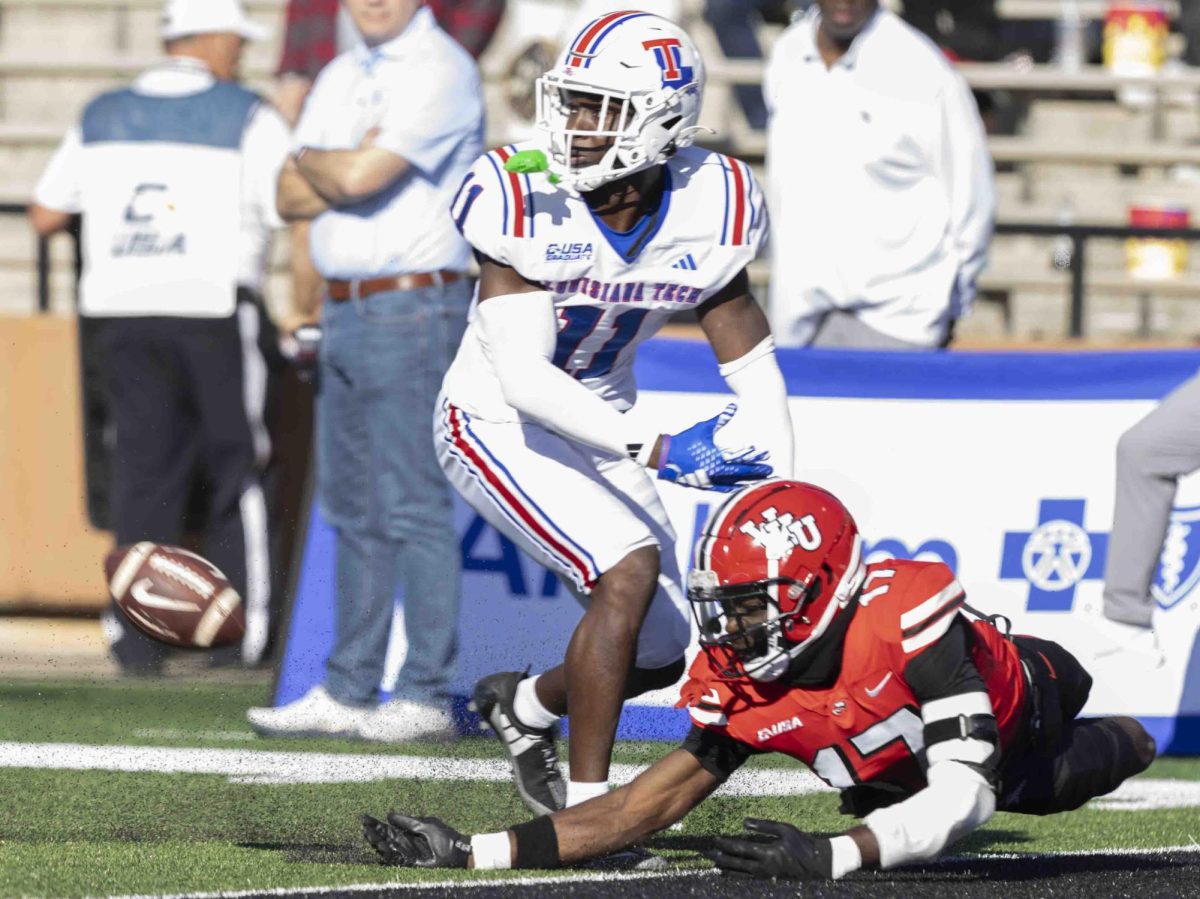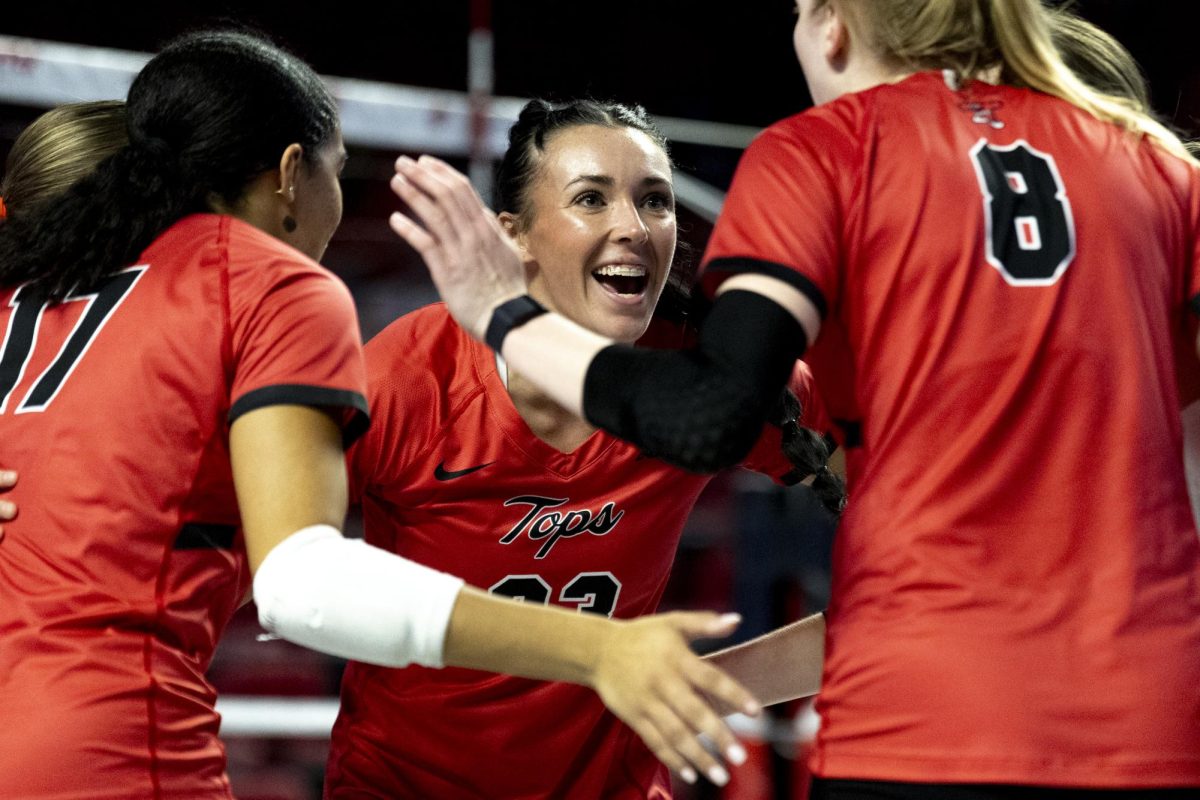PolitiFact staffers visit WKU
November 16, 2016
Reporters from a Pulitzer Prize-winning, political fact-checking website visited WKU on Wednesday for a presentation on the lies told during the 2016 presidential election.
The PolitiFact “Pants on Fire” lecture featured journalists Amy Hollyfield and Katie Sanders and was held in the Mass Media and Technology Hall auditorium.
Hollyfield said fact-checking and ranking statements made during the 2016 election was challenging at times because of the amount of exaggerations made by the candidates.
“This election has obviously been harder because there’s so much lying and so many talking points that we’ve had to make decisions about what to skip and what not to skip,” Hollyfield said.
The lecture was brought to campus as part of the Fleischaker/Greene Scholars in a First Amendment Studies class. The class, called Politics and the Presidency, is part of the Fleischaker/Greene Scholars in First Amendment Studies Program, Amanda Crawford, assistant professor in the School of Journalism and Broadcasting, said.
Crawford, who is teaching the class along with the department of political science head Saundra Ardrey, said bringing PolitiFact to WKU was very timely considering the atmosphere of this year’s election.
Crawford believes this election not only had two candidates who were known for their lies and exaggerations, but it also had fake news sites that appeared and reported on false information.
“The fact-checkers really have had a role both in being a check on the candidates but also being a check on that misinformation that permeates the web,” Crawford said.
Crawford said PolitiFact was invited to speak because the website’s purpose is in line with the topics covered in the Politics and the Presidency class. She said the course, which students must apply to take, covered the history of presidential power, advertising and running a campaign, the Electoral College and covering politics as a journalist.
PolitiFact works exclusively to cover politics and fact-check statements made by both elected officials and candidates.
Hollyfield said PolitiFact fact-checks politicians at all levels of government from the local level to the national level. In addition, the website fact-checks some global news.
She described the process of selecting statements to fact-check as “tried and true.” Hollyfield said the reporters for the website, which was started in 2007, choose topics based on what is trending or what people are asking about.
Once a statement is selected and has been fact-checked, the article is then assigned a ranking on the Truth-O-Meter, which is a meter with six ratings used to measure the accuracy of statements.
The ratings range from “True” to “Pants on Fire,” which is a rating used for a statement that is “not accurate and makes a ridiculous claim,” according to PolitiFact’s website.
Hollyfield said the articles are always objective; however, the ranking on the Truth-O-Meter is subjective and determined by three editors. She said the editors are usually able to reach a unanimous decision about the appropriate ranking; however, if the editors are divided, then the majority will win. In the rare cases where a decision cannot be reached, Hollyfield said a fourth editor will be brought in and consulted.
PolitiFact fact-checked multiple statements from both Hillary Clinton and Donald Trump throughout the campaign season; when the statements from both candidates were compared, Hollyfield said the comparison showed Trump made more false statements than Clinton.
Hollyfield said nearly 70 percent of Trump’s statements turned out to be mostly false, while most of Clinton’s statements fell toward the true side of the meter.
Scott Lasley, a professor in the department of political science, said fact-checking websites such as PolitiFact are important for an election because they allow people to see the truth. He believes in this election accuracy has been a problem for many of the candidates, primarily because of how the campaigns run.
“Part of politics on the campaign side is to present your candidate as the most favorable and your opponent in the most negative light, and so that leads to statements of omission or things like that,” Lasley said.
He believes omissions of truth or misleading statements are also often used by candidates.
“It’s not just the outright misstatements that are misleading,” Lasley said. “It’s also, for example, when they take things out of context that are technically accurate.”
Crawford said journalists have an obligation to inform readers about the accuracy of statements made by politicians. She said there are times when a candidate may want the media to portray him or her in a favorable light; however, she said the media’s job is not to cater to the politicians. Their job is to present the facts and inform readers of the truth.
Crawford said she believes journalists and fact-checking are especially important now that Trump has won the presidency.
“We do have a president-elect who is openly hostile to the ideas of a free press; he has said that he wants to be able to change libel laws to sue media outlets that write negative stories about him,” Crawford said. “That is terrifying to our democracy.”
Reporter Emma Collins can be reached at 27-745-6011 and [email protected]. Follow her on Twitter at @__emma_collins__.










